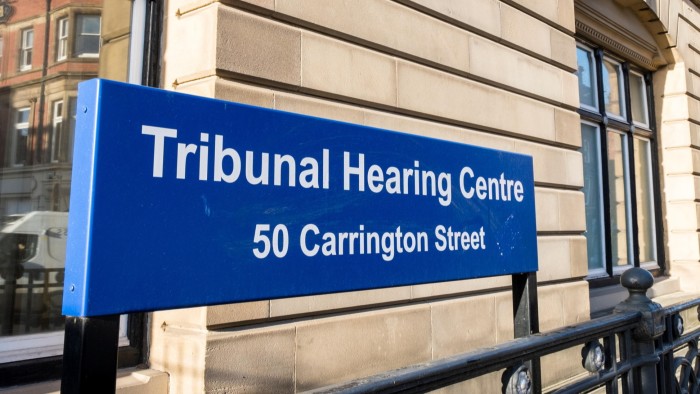Stay informed with free updates
Simply sign up to the UK employment myFT Digest — delivered directly to your inbox.
The UK employment tribunal backlog has hit record levels, with lawyers warning that a queue of almost 50,000 cases is likely to rise as businesses absorb the impact of new worker rights’ legislation.
Some 49,800 cases were waiting to be heard by an employment tribunal at the end of the final quarter of last year, up from 39,000 in the same period of 2023, according to data from HM Courts & Tribunals Service.
The jump comes as a severe shortage of qualified employment tribunal judges has left about 450,000 individuals, across both single and multiple claims of unlawful treatment, waiting for their cases to be resolved.
Philip Cameron, partner at law firm Littler, which obtained the figures, said the long backlog was “just not fair on either party” and that “leaving businesses in legal limbo makes it harder for them to operate”, especially small and medium-sized enterprises with relatively fewer resources.
“The government needs to supply proper additional funding to help the tribunals cope with the current backlog and deal with the likely surge in disputes that is expected after the Employment Rights Bill becomes law,” he added.
Under the government’s flagship worker rights’ legislation, which is now going through parliament and likely to take effect from 2026 onwards, employees will be entitled to “day one” protections against unfair dismissal.
They will also have up to six months to bring a claim to an employment tribunal after the incident in question, up from three months at present, for most claims.
Ministers have said doubling the period in which a claim can be brought is “likely to simplify the employment tribunal system, reducing complexity and rigidity for employees navigating it”, as well as “providing a more realistic amount of time for the preparation of strong cases and raising of funds for legal costs”.
But Cameron warned that making unfair dismissal a day one right “even with probation periods permitted, is going to result in a big surge in claims”.
“On top of that is the possibility of disputes arising from companies making redundancies as they try to cope with the recent increase in the minimum wage and employers’ national insurance,” he added.
The HMCTS data showed that 11,500 claims were lodged with employment tribunals in the final three months of last year, up 30 per cent from the same period in 2023 and exceeding the 10,100 cases resolved in the final quarter of last year.
Disruption to hearings caused by the Covid-19 pandemic has exacerbated the backlog, along with the abolition of tribunal fees in 2017. The move meant people, who previously had to pay between £390 and £1,600 to lodge claims, could bring claims for free again, driving up case numbers.
The Ministry of Justice said the government had inherited “a soaring employment tribunals backlog” and “funded the employment the tribunal to sit at maximum capacity”.
“We also continue to invest in the recruitment of approximately 1,000 judges and tribunal members across the courts and tribunals,” it added.




